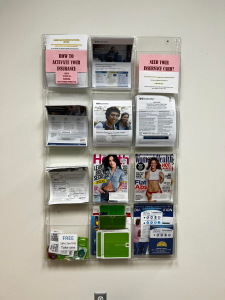
STD rates reach new highs in America
Sexually transmitted diseases (STDs) are reaching new highs in America with a 26% rise in syphilis reported last year, as well as a 16% rise in HIV. Other rising STDs include chlamydia and gonorrhea.
2.5 million cases of chlamydia, gonorrhea and syphilis were reported in preliminary STD surveillance data which includes the reports made to the CDC through the National Notifiable Diseases Surveillance System as of July 7, 2022. Although STDs affect all age groups, 15–25-year-olds account for half of all new STD infections.
Much like other diseases such as monkeypox or COVID, STDs are disproportionately affecting certain groups according to the preliminary data which shows racial and ethnic minority groups, gay and bisexual men and young people are all impacted disproportionately by higher rates of STIs.

Director of Health Services Regina Pickett said getting tested for HIV and other sexually transmitted infections is an important part of routine health care if you are sexually active or not. Pickett also provided information on the various services students have access to on campus pertaining to sexual health.
“We do STI testing every day,” said Pickett. “We test for everything like Gonorrhea, Herpes, HIV, etc. This goes for any student whether they have insurance or not. We also provide antibiotics for people who have already tested positive for these infections.”
The CDC recommends anybody who has been sexually active with another person or who has come into contact with blood, fecal matter or sperm should get tested for STDs just to be safe. They also recommend anyone seeking to get tested to call their hotline at 1 (800) 232-4636. The hotline will find testing locations near you when you give the representative your zip code.
The STI National Strategic Plan overview says Americans largely underestimate the risk of STIs and for myriad reasons and may not proactively seek care.
“We are very welcoming and inclusive here,” said Pickett. “We encourage all students to get tested here even if they have not been sexually active.”
The Health Services accept walk-ins to get tested, or students can call their number at (281) 283-2626 or email healthservices@uhcl.edu to make an appointment.
